Pharmacy Students Gain Engagement Experience Through Partnership with Early Childhood Education Organization
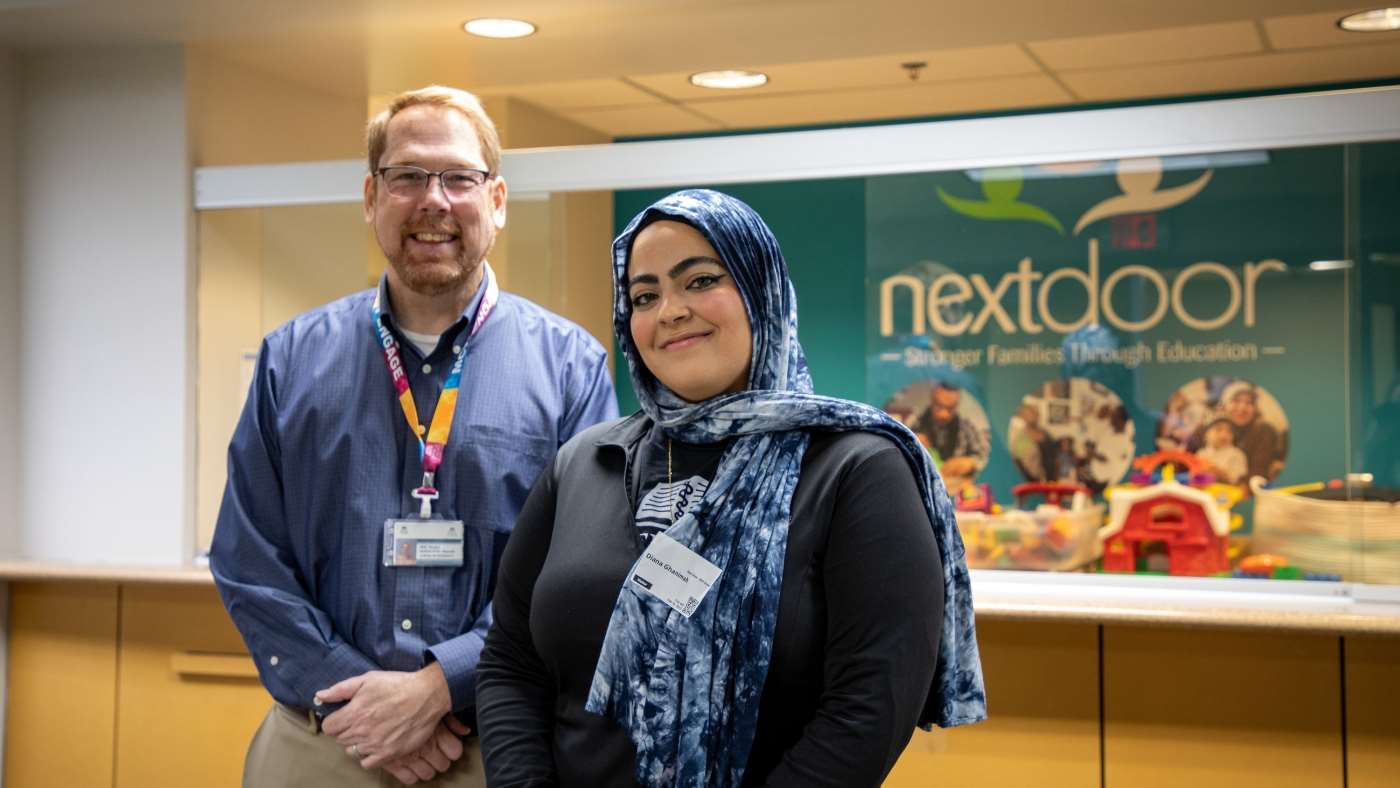
After a pause during COVID, the MCW School of Pharmacy is again offering health screenings to the community through a partnership with Next Door Foundation’s early childhood education centers. The screenings, available at no charge to the patient, are offered to Next Door parents, as well as staff and community residents.
The partnership started in 2019 to increase health awareness and support under-resourced communities. With the oversight of qualified preceptors, students in the School of Pharmacy provide various screenings including blood pressure, body mass index, cholesterol and glucose – needs that were identified through community listening sessions.
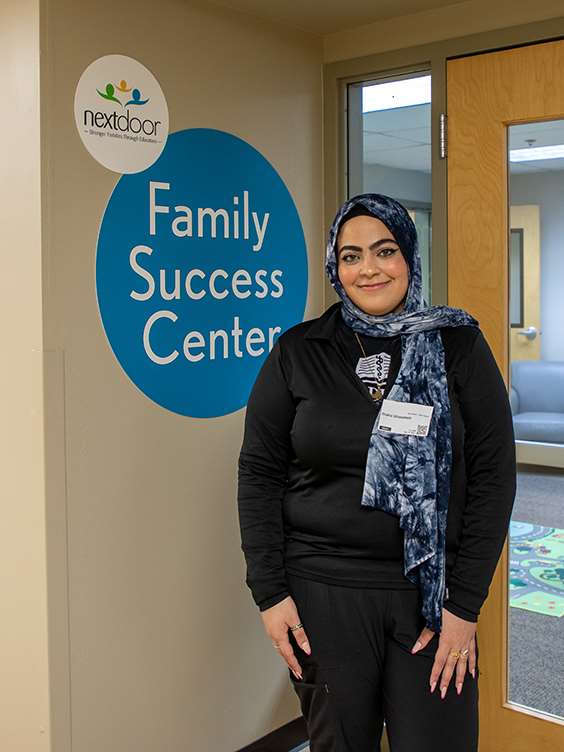 The program is also a way for students interested in a community-based pharmacy career to gain experience in providing services that expand the role of the pharmacist. Mike DeBisschop, PharmD, a professor in the Department of Clinical Sciences, organizes appointments, supervises students administering the screenings and assists with referring patients to follow-up health care appointments.
The program is also a way for students interested in a community-based pharmacy career to gain experience in providing services that expand the role of the pharmacist. Mike DeBisschop, PharmD, a professor in the Department of Clinical Sciences, organizes appointments, supervises students administering the screenings and assists with referring patients to follow-up health care appointments.
“It’s all about access – making sure people with minimal access to the health care system have the opportunity to learn about themselves and to make informed choices about their health. Another component is having the students take their skills they have learned in the curriculum and put them into action,” says Dr. DeBisschop.
Pharmacy student Diana Ghanimah says it’s been a refreshing experience to connect with community members and help them focus on building healthy habits. Along with completing screenings, student pharmacists educate patients on exercise, healthy eating and possible sources of high blood pressure.
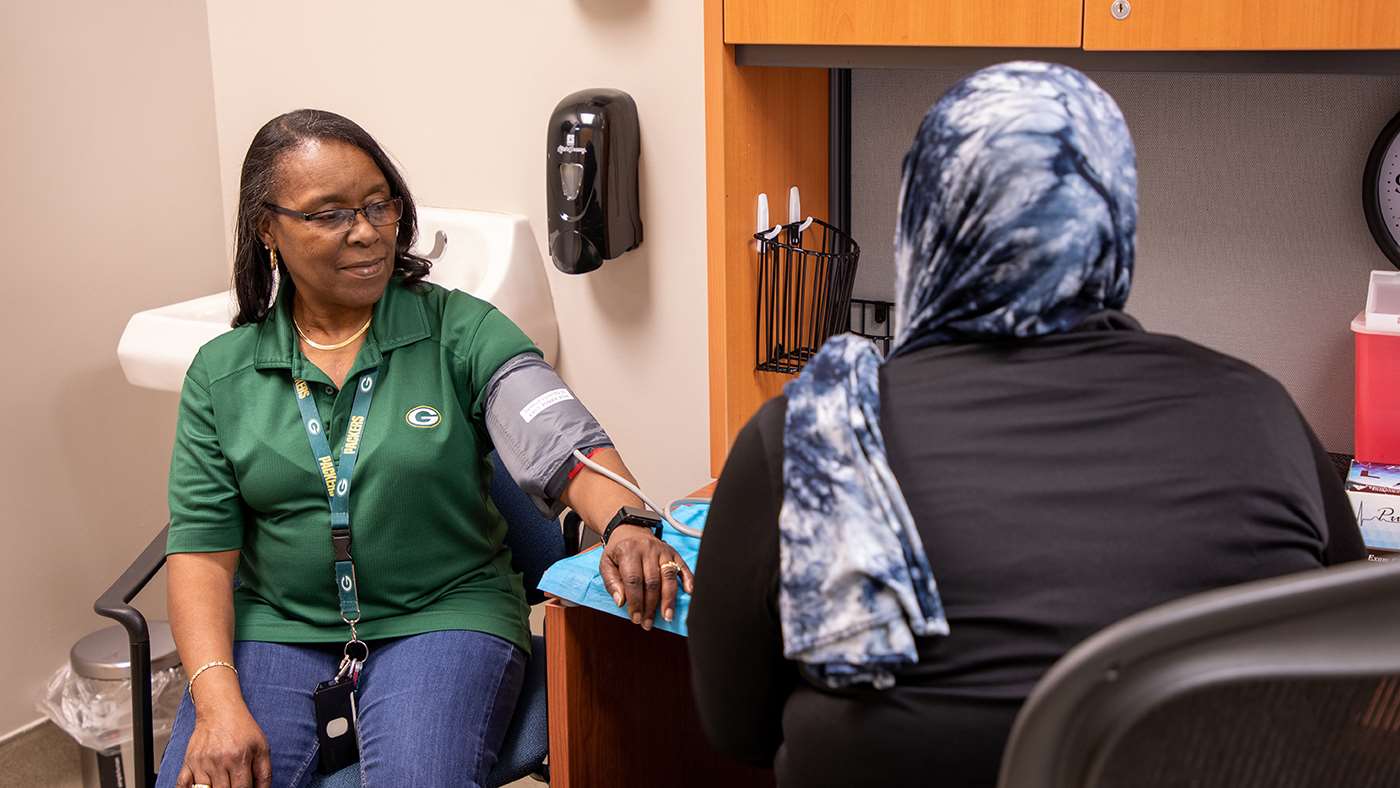
“Sometimes people need that outside voice to remind them to take care of their health,” says Ghanimah. “In school, we learn the numbers for healthy cholesterol and blood pressure screenings, but this experience allows me to practice giving patients the full picture of their health and interacting with them empathetically.”
Ghanimah recalls being motivated to become a pharmacist at age 18, when she was diagnosed with having excess fluid throughout her brain and spinal cord. In addition to the challenges of having a rare condition at a young age, her parents, who immigrated to Chicago from Palestine, were not fluent with English. A doctor had advised surgery, but Ghanimah advocated for herself and sought a second opinion. She met with another doctor who recommended medication and a strict diet.
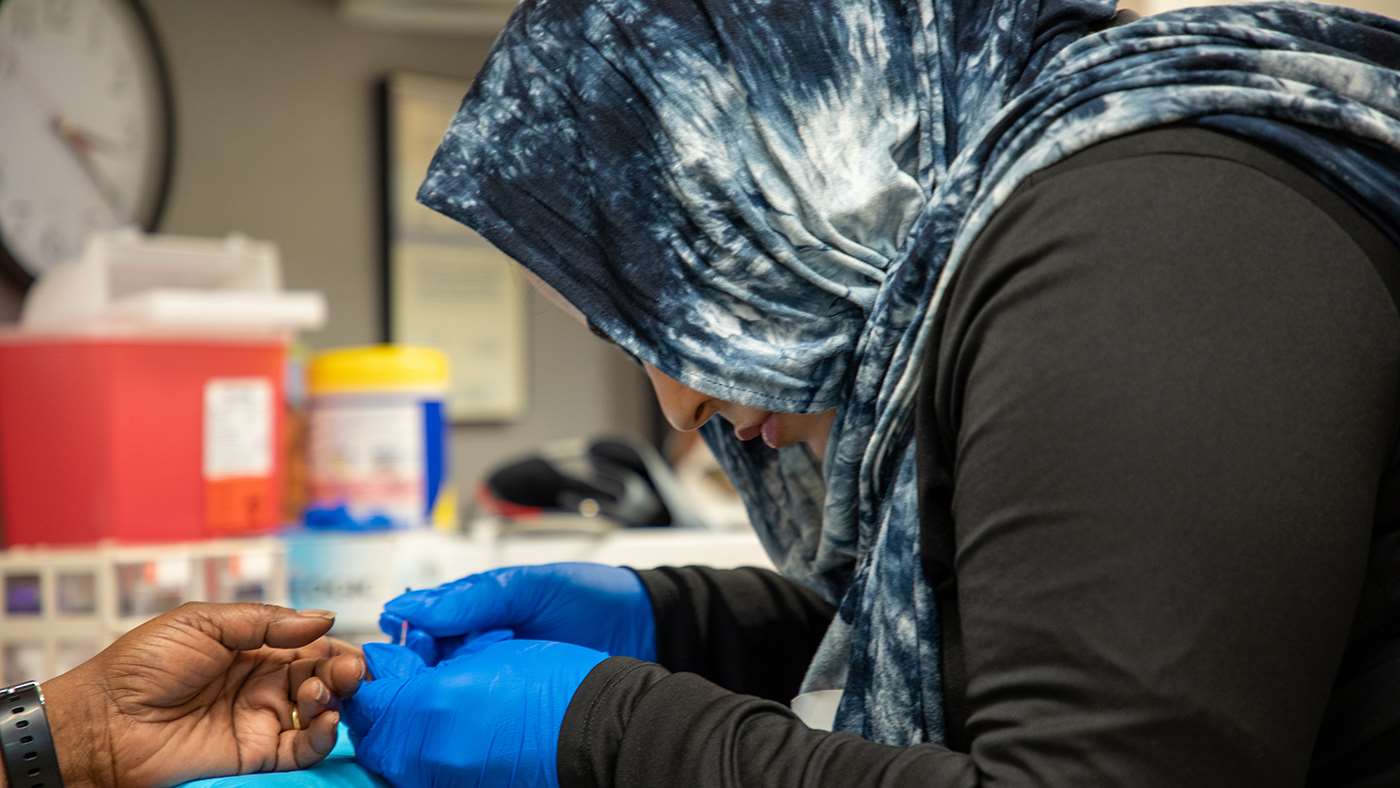
When she picked up her new prescription for the first time, the pharmacist didn’t provide any information about what the prescription would do or if there were any side effects.
“I left the pharmacy feeling worried, and that’s not how it should be. I didn’t get that interaction that I wanted, so that motivated me to start a pharmacy career,” she explains.
The medication and diet worked, and Ghanimah has been healthy for seven years. After working as a pharmacy technician for nine years, Ghanimah is now a first-generation college student, working to earn her PharmD in 2024. “We perform a lot of point-of-care testing, but my goal in this experience is really to help students enhance their communication skills and their confidence in speaking with others who are different from them,” says Dr. DeBisschop.
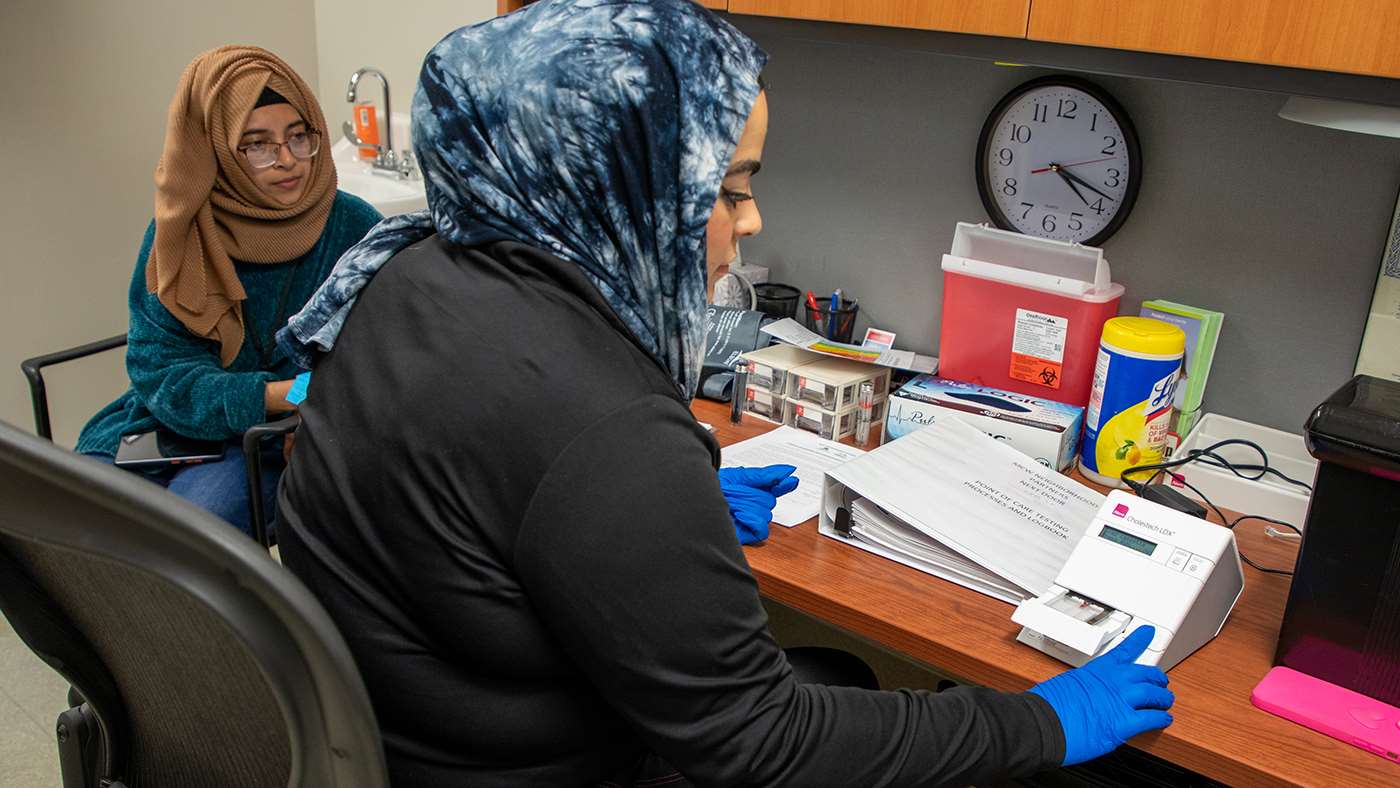
“As pharmacists, we can possess all the knowledge we want, but it’s in how we communicate that, how we build trust with people, and how we help each individual reach their health goals that makes a great pharmacist.”



